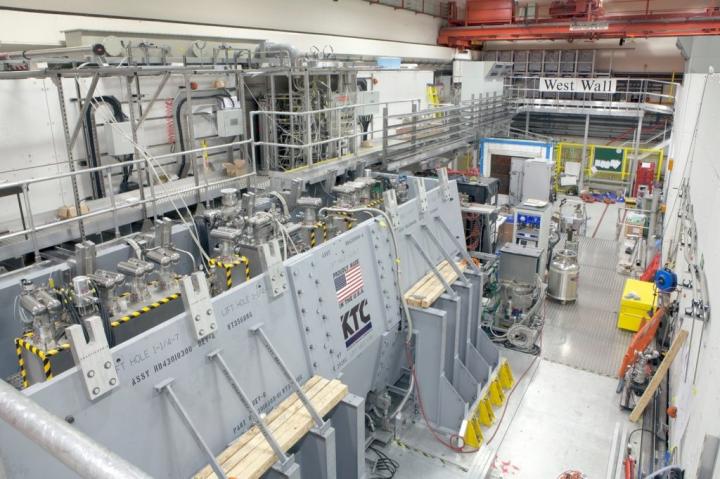An international team of researchers, affiliated with UNIST has for the first time succeeded in demonstrating the ionization cooling of muons. Regarded as a major step in being able to create the world’s most powerful particle accelerator, this new muon accelerator is expected to provide a better understanding of the fundamental constituents of matter.
This breakthrough has been carried out by the Muon Ionization Cooling Experiment (MICE) collaboration, which includes many UK scientists, as well as Professor Moses Chung and his research team in the School of Natural Sciences at UNIST. Their findings have been published in the online version of Nature on February 5, 2020.
“We have succeeded in realizing muon ionization cooling, one of our greatest challenges associated with developing muon accelerators,” says Professor Chung. “Achievement of this is considered especially important, as it could change the paradigm of developing the Lepton Collider that could replace the Neutrino Factory or the Large Hadron Collider (LHC).”










Comments are closed.